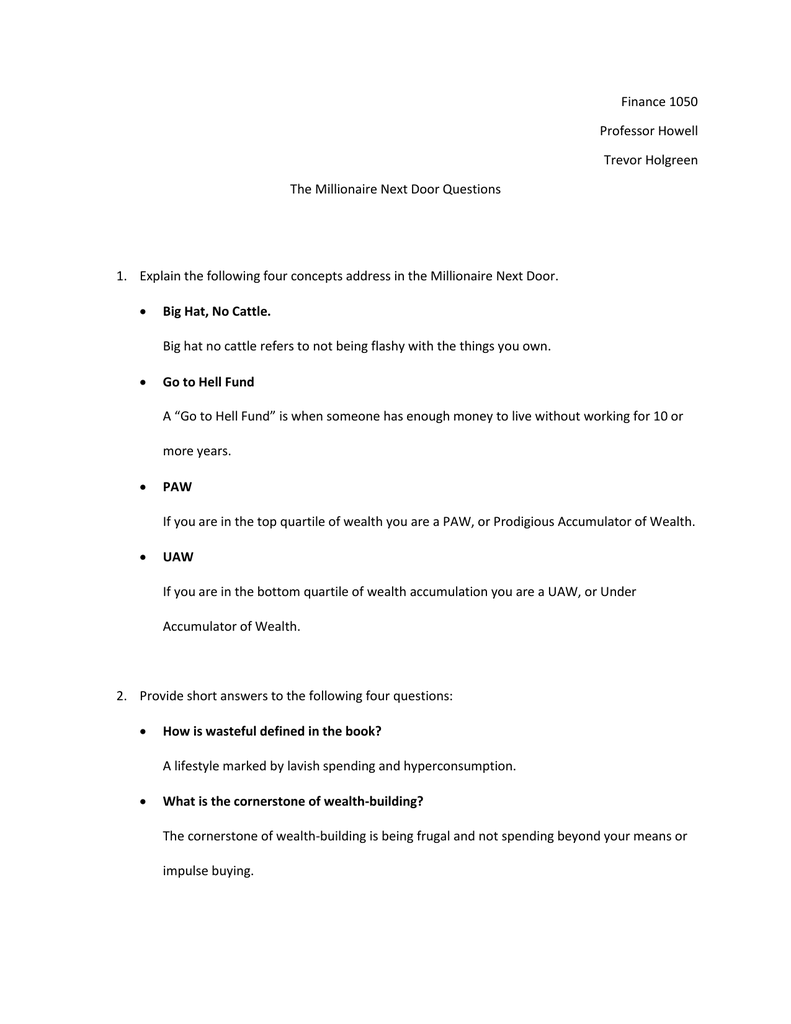
Why? The book makes a great point on this by using the analogy of it being like the fit person who works out. Even after they become wealthy, most of them continue to budget. And not spending money on fancy clothes, cars and houses is part of how they save their money and get their money working for them. They’re not building their wealth to impress you or anyone else. Meanwhile, you don’t see these outward symbols of wealth on people who are actually wealthy. So, the person with the symbols of wealth (the car, the house, the clothes, etc) may not be wealthy after all (some are, some aren’t). Then subtract that from the value of what you own (300,000-272,000= Net Worth of 28,000) (Want a short video explanation? Watch: What is Wealth?) And it’s basically the value of what you own (assets) minus what you owe (debts/liabilities). The way to measure wealth is a formula (don’t get scared by that word) called net worth.

But those outward symbols don’t tell you what’s in their bank account.īack to wealth. What we’re seeing are outward symbols that many people think show wealth. Wealth is money and we can tell when someone has money, right? That might seem like a crazy question because we think we know what wealth is. This brings me to another important point – what is wealth? Many people who wear fancy clothes, drive fancy cars and live in ritzy neighborhoods are actually in debt.Many wealthy people don’t live in fancy homes, drive fancy cars or wear expensive clothes.And their research revealed a number of surprising things. While both people are made up, this example is based on research conducted by the book’s authors, Thomas J. Most people think that John is the wealthy person. Of these 2 people, who do you think is wealthy? John, is an attorney, drives a Lexus, makes over $150,000/year and lives in an upper income area

Let me illustrate one of the important takeaways the same way that I would do it at one of my presentations.īob, is a contractor, drives a Ford pick-up, makes about $80,000/year and lives in a middle-class area Still, this book has some key ideas that are incredibly helpful for each of us to understand. While this book is not one that I would necessarily recommend to someone who is just starting to learn about money (The Automatic Millionaire is a better starting point, look for the newer edition that came out around 2015). Eventually I took the plunge and I’m glad that I did. After hearing that, I actually felt less motivated to read the book but it would still cross my mind. I’d come across the book and also heard from one of my favorite authors, that one of the key takeaways was the importance of managing your money. Sometime in the last year or two I finally got around to listening to the audiobook of The Millionaire Next Door.


 0 kommentar(er)
0 kommentar(er)
